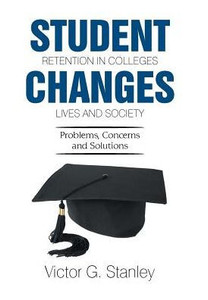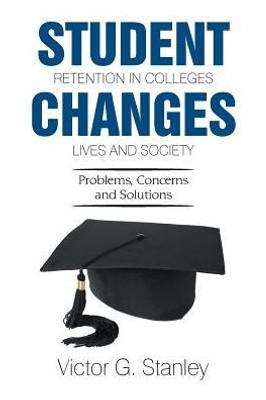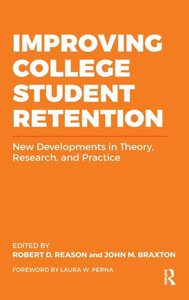

Student Retention In Colleges Changes Lives And Society: Problems, Concerns And Solutions - 9781543463859
Xlibris
ISBN13:
9781543463859
$20.21
Student retention varies with colleges and universities within and among states. Retention is as high as 91 percent and as low as 34 percent among colleges. The huge differences are varied, and should be addressed differently, especially for the predominately historically black colleges and universities. Reasons for low student retention in colleges range from inadequate pre-college preparation of students coming fromny high schools. High schools are funded primarily from local tax dollars, which suggest that if the local tax dollars are low, then the high school budgets will be impacted. Low budgeting does not provide sufficient funds to attract top tier teachers and the students that are being prepared for colleges could berginal and inadequately prepared to undertake the rigors of college experiences. Under-prepared andrginal high school graduates present high risks in completing the college degree requirements in four or five years. Failure to complete the degree causes the students to leave college without a career and they are forced to settle for low paying jobs. Low paying jobs generate low wages and salaries that are often not sufficient to pay bills and cover other responsibilities. In an effort to survive they become too dependent on others, including families, friends, and the state and federal government. The end result is additional costs to the state and federal budgets. Student retention should be everybody''s concern, students themselves, parents, state and federal authorities, and the college administration. The students should be adequately advised from the beginning of theirtriculation within the college by choosing the subjects that will help them to undertake the rigor of college education. Planning where to go, what careerjor to pursue, and the cost of the education should be in place at least one year before attending college. It is helpful for the student, with the help of family and school counselors, to do some research in each of these important areas. Toony students think of going to college during the last semester in the senior year of high school. Such practices place the student into a rush mode, resulting in confusion and inking bad choices. The students should do their own research on the status and image of the college, faculty, and the outcome of their graduates. The research will allow the freshman toke good choices and prevent unnecessary mistakes. Good choices relative to suitable and compatible roommates, course selections, and advisors are paramount to college success. College advisors also play a critical role in the preparation of the student''s career, reducing early confusion and frustration. The first semester is highly critical for a good start, because it can be considered as the period of adjustment after which comes growth and development. Counselors can be helpful in course selection. Each student''s academic ability is different and should be advised differently. A useful guide for the counselor is the student''s high school transcript. With the minimum of fifteen credit hours for the first semester that is five classes, at least three of the five classes should be centered on the academic strength of the student. It is ill advisable to blanket treat all students, therefore adequate counseling should be available, so that special attention can be given to each student. Often times the advisor and counselor are overwhelmed with students who have to resort to self-help, or being advised by fellow students, who are not trained to help students in need. Faculty image and status also help to retain students. The student seeks attention and will not wait very long for such attention. Advisors and counselors should not be selective in the way that they treat students. Punishment and rewards should be awarded fairly and the process should be as transparent as possible. If students are treated equally and fairly, then they will perform equally, irrespective of color, class, culture, gender, and religion. Failure of the student to complete the college degree can place a high burden on the student as they are saddled with high student loans without having a high paying job. Therefore, student loan policy should be revised and loans should be based on needs and not on availability. Some students tend to take more than what is needed and they tend to squander the balance on social wants. Consequently, the student, without completing the degree, will be saddled with the debt burden. Retaining students to complete the degree is like a bird in the hand for the person and not in those bushes.
- | Author: Victor G. Stanley
- | Publisher: XLIBRIS
- | Publication Date: Nov 27, 2017
- | Number of Pages: 84 pages
- | Language: English
- | Binding: Paperback/Education
- | ISBN-10: 1543463851
- | ISBN-13: 9781543463859
- Author:
- Victor G. Stanley
- Publisher:
- XLIBRIS
- Publication Date:
- Nov 27, 2017
- Number of pages:
- 84 pages
- Language:
- English
- Binding:
- Paperback/Education
- ISBN-10:
- 1543463851
- ISBN-13:
- 9781543463859





